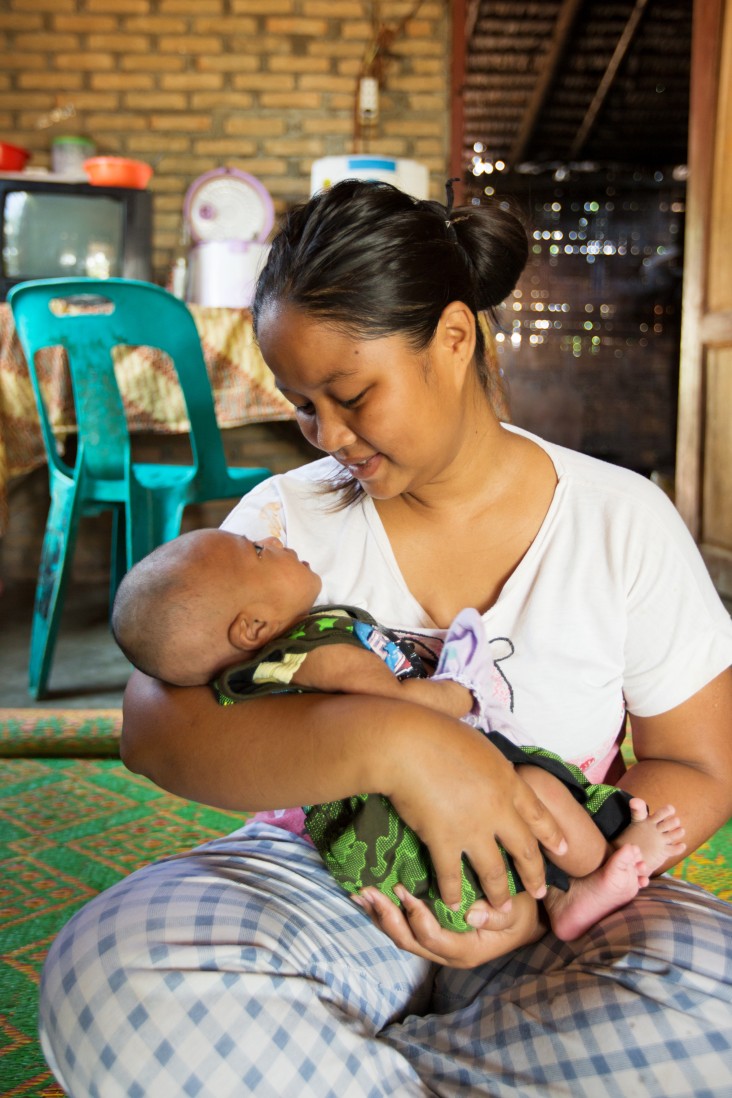Speeches Shim

In emergency situations, health systems need to be able to connect patients with the appropriate care as soon as possible. This is especially true during labor and delivery emergencies, which can quickly become life-threatening for both mother and baby. One Indonesian woman dies almost every hour from pregnancy and childbirth complications. Thankfully, that wasn’t the case for Desi, a first-time mother who experienced unforeseen, life-threatening complications during her delivery. Desi was 40 weeks pregnant when she felt her first contraction at 5:30 in the morning. Together with her husband, she rushed to the Talun Kenas Health Center, an hour from the village and was met by Senta, her local midwife.
At 11 a.m., Desi gave birth to a boy, but the placenta did not follow as it should have. Senta and other midwives tried several times to remove the placenta, but nothing was working. Before long, Desi began to bleed heavily. Senta sent Desi's vital signs via SMS to the hospital using SijariEMAS, a digital referral system designed to speed up the process of getting patients like Desi the right care in emergencies. SijariEMAS referred Desi to the Sembiring Hospital, 10 miles away. Senta notified the hospital by text message that Desi was on her way and they were able to quickly prepare for her arrival. By the time Desi arrived, the hospital had the proper blood type available for transfusion and were ready to carry out the procedures Desi needed, ultimately saving Desi’s life.
SijariEMAS connects 24 districts and 6 cities across Indonesia, covering 150 hospitals and 300 community health clinics. In supporting SijariEMAS, USAID has revolutionized the way that public and private health facilities work together to triage patient care. In 2018, a private social enterprise took over the financial and logistics management of SijariEMAS and since then, it has expanded from 30 to 53 districts.
USAID’s support to pilot innovative technologies like SijariEMAS saves lives and empowers communities to reach their full potential and live happy, productive lives. The private sector’s role in sustaining the SijariEMAS system supports Indonesia’s Journey to Self-Reliance by ensuring that Indonesia is equipped with the tools and resources needed to overcome its health care challenges.

Comment
Make a general inquiry or suggest an improvement.